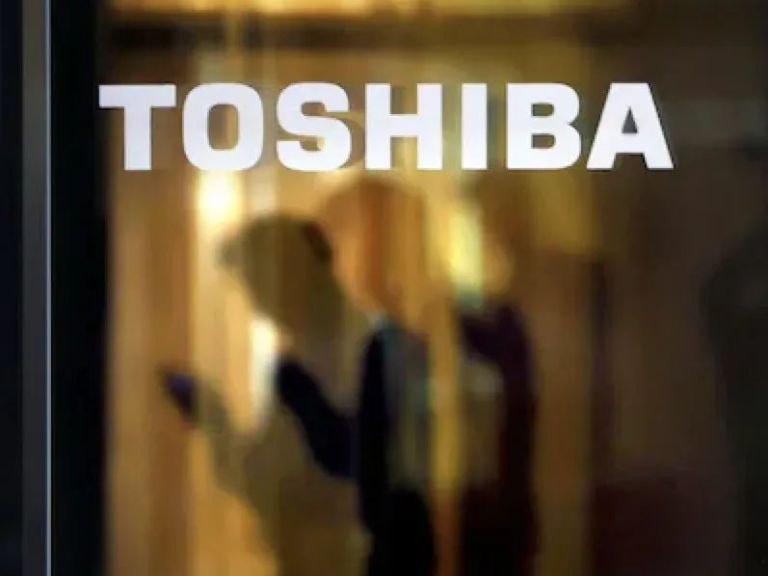- Ameya360 Component Supply Platform >
- Trade news >
- Toshiba Hopes to Finalize Chip Unit Sale to Bain-led Group
Toshiba Hopes to Finalize Chip Unit Sale to Bain-led Group
Toshiba said it signed a non-binding agreement with a consortium of bidders led by private equity firm Bain Capital, signaling its intent to finalize an agreement on the sale of its semiconductor business by the end of this month.
Toshiba (Tokyo) said its board signed a memorandum of understanding (MOU) with the Bain-led group Wednesday (Sept. 13), but that the MOU does not preclude continued negotiations with other groups, including the consortium led by Western Digital and another led by Foxconn.
Toshiba — which is desperate to sell of its lucrative NAND flash memory business to offset losses by its U.S. nuclear power business — said it has been in continued discussions with all three groups for weeks, but decided to further negotiations with the Bain group on the basis of that group's latest proposal. According to the Reuters news service, that proposal is worth about $22 billion, more than the $18 billion Toshiba originally hoped to fetch for the unit.
Reuters, citing anonymous sources, also reported that the new bid is structured to allow consortium members Innovation Network Bank of Japan (INCJ) and the Development Bank of Japan to invest only after pending arbitration with Western Digital has been resolved. Toshiba had selected the Bain-led group as its preferred business in June, but talks reportedly collapsed after INCJ and the Development Bank of Japan — both of which are backed by the Japanese government — balked when Western Digital initiated legal action.
Western Digital has said that the structure of the joint ventures between its subsidiary, SanDisk, and Toshiba precludes Toshiba from selling the memory business without its approval. Western Digital repeated this claim in a statement released Wednesday, adding that it was disappointed that Toshiba signed the MOU with the Bain-led group.
The Western Digital statement read, in part: "It is surprising that Toshiba would continue to pursue a transaction with a consortium led by Korea-based SK Hynix Inc. and Bain Capital Japan without SanDisk’s consent, as the language in the relevant JV agreements is unambiguous, and multiple courts have ruled in favor of protecting SanDisk’s contractual rights. We remain confident in our ability to protect our JV interests and consent rights."
Toshiba's statement on the MOU did not mention SK Hynix, though the Reuters report indicated that SKy Hynix remains part of the consortium. Under the earlier proposal by the Bain-led group, SK Hynix was to provide financing and eventually gain a minority stake in the chip unit. This had reportedly been another sticking point in negotiations due to fears that the involvement of the South Korean chip firm would increase antitrust scrutiny.
Reuters reported Wednesday that SK Hynix's role in the consortium remains providing financing, but added that it was unclear if the chip firm hoped to gain a stake in Toshiba Memory in the future.
Toshiba is eager to conclude the sale of the chip unit by March to prevent Toshiba's potential delisting from the Tokyo Stock Exchange.
Toshiba is the second largest supplier of NAND flash memory, with market share of about 18 percent in the second quarter, according to market watcher DRAMeXchange.
Online messageinquiry
- Week of hot material
- Material in short supply seckilling
| model | brand | Quote |
|---|---|---|
| RB751G-40T2R | ROHM Semiconductor | |
| BD71847AMWV-E2 | ROHM Semiconductor | |
| TL431ACLPR | Texas Instruments | |
| CDZVT2R20B | ROHM Semiconductor | |
| MC33074DR2G | onsemi |
| model | brand | To snap up |
|---|---|---|
| ESR03EZPJ151 | ROHM Semiconductor | |
| IPZ40N04S5L4R8ATMA1 | Infineon Technologies | |
| TPS63050YFFR | Texas Instruments | |
| BU33JA2MNVX-CTL | ROHM Semiconductor | |
| BP3621 | ROHM Semiconductor | |
| STM32F429IGT6 | STMicroelectronics |
- Week of ranking
- Month ranking
Qr code of ameya360 official account
Identify TWO-DIMENSIONAL code, you can pay attention to


Please enter the verification code in the image below:

























